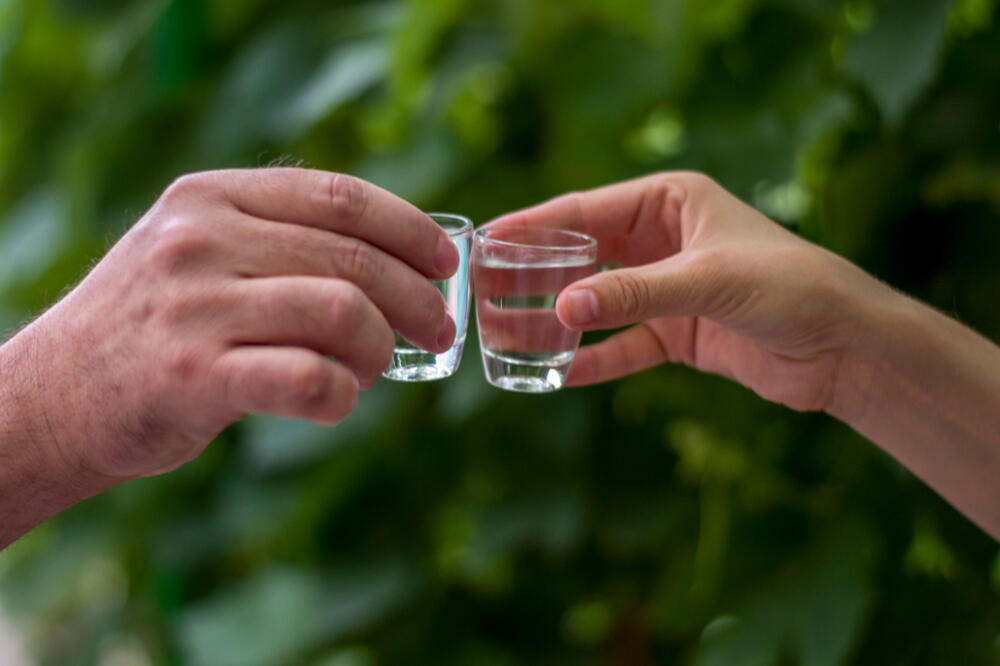The classic image of an alcoholic is usually someone who is always drinking too much and whose life is falling apart because of it. But that's not always the case.
Some people are apparently just fine even though they abuse alcohol. Experts call these people functional or high-functioning alcoholics. They explain that these are socially inconspicuous people who function satisfactorily at work and at home, and often more than satisfactorily. The immediate environment does not perceive them as drunkards but as people "who like to drink". Such people usually drink on certain occasions, but after them "they don't know themselves from the amount of alcohol consumed". There are others who regularly drink a glass or two of wine six nights a week. We can count both of them as functional alcoholics.
A functional alcoholic may be responsible and productive at work, even in a position of power. He functions in his family, with friends and in society, and his business and personal success could lead people to overlook his drinking
He might also be in denial and think, "I have a great job, pay the bills, and have lots of friends; that's why I'm not an alcoholic. He might also make excuses like, 'I only drink expensive wine, or I haven't lost everything or suffered setbacks because of drinking,'" says Sarah Allen Benton, mental health counselor and author of Understanding the High-Functioning Alcohol.
What signs indicate a functional alcoholic:
A high-functioning person with alcohol abuse usually experiences moderate to very little consequences associated with alcohol abuse, but despite having fewer consequences, a high-functioning alcoholic still relies on alcohol to complete daily tasks and is dependent on intense cravings for alcohol, which in the long term impairs his health and well-being," said Brittany E. Bryant and Lindsay M. Squeglia, Ph.D.
It can often be difficult to recognize a drinking problem in functional alcoholics. Here are some signs to look for:
- they cannot control and stop drinking alcohol
- they already had legal problems related to drinking
- they drink alone, hide their drink from others, or need alcohol before attending social events
- become angry or defensive when others question their drinking habits
- they drink alcohol to cope with stress or negative emotions
- they have crisis symptoms when they are not drinking - tremors, irritability, restlessness, difficulty sleeping and nausea
Also, these warning signs can reveal alcohol abuse:
- you always joke about alcoholism
- you lose friends or have a drinking problem, but you don't give up alcohol
- you need alcohol to relax or feel confident
- you drink in the morning or when you are alone
- you get drunk when you don't mean to
- forget what you were doing while you were drinking
- you deny drinking, hide alcohol, or get angry when confronted with questions about your alcoholism
- loved ones are worried or making excuses for your drinking

Although functional alcoholics may appear to be in control, they may put themselves or others in danger by drinking and driving or, for example, by engaging in risky sexual behavior.
Heavy drinking has many other risks - liver disease, pancreatitis, cancer, brain damage, severe memory loss and high blood pressure. They are also at increased risk of dying in a car accident or committing suicide. Additionally, any alcohol abuse increases the chances of domestic violence, child abuse and neglect, and fetal alcohol syndrome (a group of birth defects that can occur if a pregnant woman drinks alcohol)," says mental health counselor Sarah Allen Benton.
How much alcohol is a lot
Ph.D. Robert Huebner, from the US National Institute on Alcohol Abuse and Alcoholism, warns that "it is not possible to drink a lot and maintain great responsibility over a long period of time." If someone drinks a lot, it will catch up with them.
Binge drinking for women is more than three drinks a day or seven a week. For men it is four or more per day or 14 per week. If you drink more than the daily or weekly limit, you are considered a heavy drinker and need help to quit. Treatment for a high-functioning alcoholic is the same as for any other type of addict.
Bonus video:





